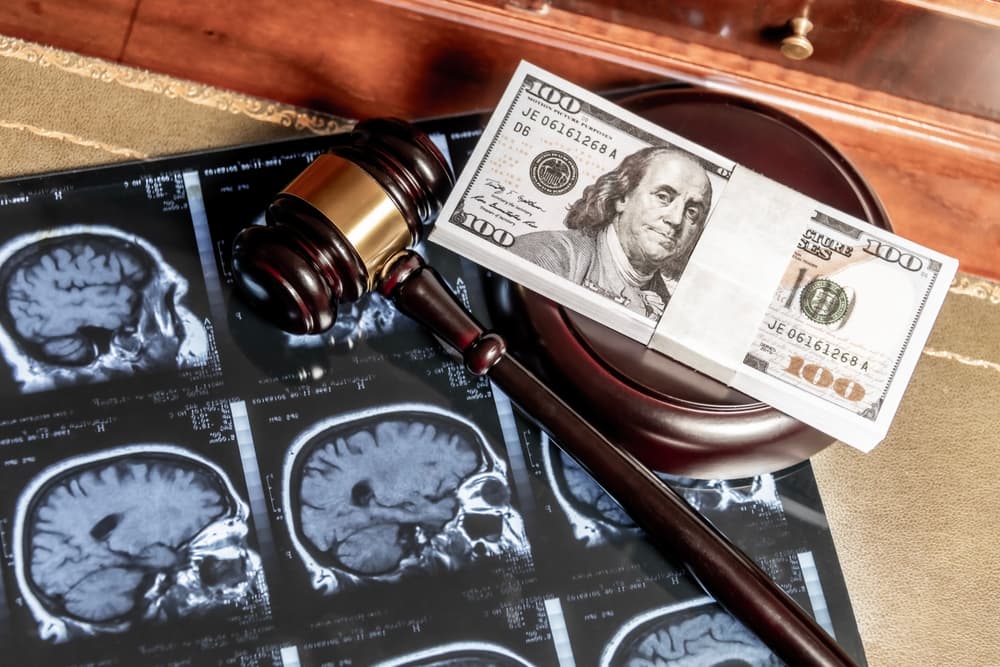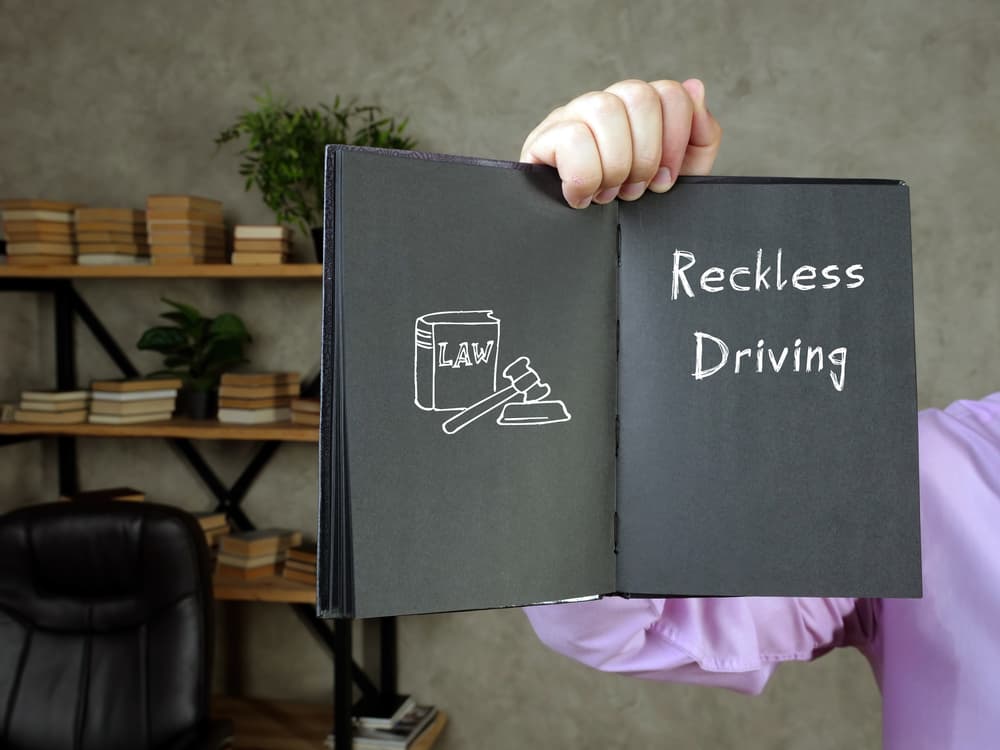Traumatic brain injuries – or TBIs – are unfortunately common in motor vehicle crashes, slip-and-falls, and other serious accidents that result from others’ negligence. TBIs can be categorized into several types, often depending on the nature and severity of the impact. Concussions are the most common type of TBI, occurring when the brain is violently shaken inside the skull and often leads to temporary cognitive issues. Another category is contusions, which are bruises on the brain tissue resulting from a direct blow to the head, potentially leading to swelling and pressure inside the skull.
More severe TBIs include diffuse axonal injuries, where the brain’s nerve fibers are torn due to rapid movement or shaking. This type of injury can cause significant brain damage and long-term disability. Penetrating brain injuries represent the most severe category, where an object penetrates the skull, directly damaging brain tissue. All of these TBIs can result in long-lasting effects that require extensive medical treatment and rehabilitation.
If you or someone you love recently sustained a TBI in an occurrence that resulted from another person’s negligence, you are not alone. An experienced medical malpractice attorney can aggressively advocate for your interests, file a claim or lawsuit on your behalf, and pursue the compensation you need.
Schedule a Free Initial Consultation Today!
Common Types of Occurrences that Cause TBIs
A TBI occurs when a sudden impact or force damages the brain, often leading to long-term physical, emotional, and cognitive effects. Many TBIs are the result of accidents due to someone else’s negligence. Here are the most common types of occurrences that can lead to a TBI:
- One of the most frequent causes of TBIs is car accidents. When drivers act recklessly, speed, or fail to obey traffic laws, they put others on the road at risk. A collision can cause a person’s head to hit the dashboard, steering wheel, or side window, leading to a TBI. In more severe crashes, the force of the collision can cause the brain to move violently inside the skull – even without direct head contact – resulting in a severe brain injury.
- Slip-and-fall accidents are another common cause of TBIs. These often occur due to unsafe conditions, such as wet floors, uneven surfaces, or poorly maintained walkways. When a person slips and falls, their head can strike the ground or other hard surfaces, potentially leading to a serious brain injury. Property owners who fail to fix dangerous conditions or provide proper warnings can be held responsible for injuries resulting from their negligence.
- Sports-related accidents also frequently lead to TBIs. While sports always carry some risk, coaches, trainers, and event organizers have a responsibility to ensure that athletes are properly supervised and equipped with the right safety gear. If a player suffers an injury because safety rules weren’t followed or because they were allowed to play despite showing signs of injury, those in charge may be considered negligent.
- Finally, physical assaults or violent acts can lead to a TBI. When someone intentionally harms another person, such as by hitting or shaking them, the victim may suffer a severe brain injury. While this involves intentional harm, in some cases, those responsible for providing safety – such as security personnel – may be found negligent if they fail to prevent the violence.
In each of these situations, TBIs can result from the careless or reckless actions of others, leaving the injured person with significant health and financial challenges. This is when a skilled TBI lawyer can be valuable.
Seeking Medical Treatment after a TBI
After suffering a TBI due to someone else’s negligence, getting proper medical treatment is essential for recovery. The type of treatment needed will depend on the severity of the injury, but here are the most important types of medical care commonly used to treat TBIs.
- Emergency Care – Right after the injury, emergency medical care is critical, especially if the person is unconscious, has seizures, or shows signs of a serious brain injury, like confusion or trouble speaking. In the emergency room, doctors will perform tests like CT scans or MRIs to assess the extent of the damage. Stabilizing the accident victim is the first priority, which may include controlling blood pressure, preventing swelling in the brain, or managing bleeding.
- Surgery – In more severe cases, surgery may be necessary. Doctors may need to remove blood clots, repair skull fractures, or relieve pressure in the brain. Swelling or bleeding in the brain can be life-threatening, so surgery is sometimes required to prevent further damage.
- Medications – A variety of medications can be used to manage TBI symptoms and prevent complications. Anti-seizure drugs are often given to prevent seizures that sometimes occur after a TBI. In some cases, diuretics are used to reduce swelling in the brain. Pain relievers and sedatives may also be prescribed to manage discomfort and anxiety during recovery.
- Rehabilitation Therapy – Rehabilitation is one of the most important parts of TBI treatment. Depending on the injury, a person may need physical therapy to regain movement and coordination, occupational therapy to relearn daily tasks, or speech therapy if there are problems with communication. Cognitive therapy is also common, helping patients improve memory, attention, and problem-solving skills.
- Ongoing Monitoring and Care – After the initial treatment, ongoing medical care is important. Regular check-ups with a neurologist or other specialists are often necessary to track the person’s recovery. Sometimes, TBIs cause long-term issues, like chronic headaches, mood changes, or memory problems, that require further treatment.
If you or a loved one incurred high medical costs for a TBI due to someone else’s negligence, an experienced personal injury lawyer can fight for the compensation you need to be made whole again.
Important Evidence in TBI Claims and Lawsuits
In TBI claims and lawsuits, evidence is key for proving the injury, showing how it occurred, and demonstrating its effect on the victim’s life. Gathering the right types of evidence is key to building a strong case for compensation. Here are the most important pieces of evidence in TBI claims.
- Medical Records – One of the most critical types of evidence in a TBI case is the accident victim’s medical records. These records document the diagnosis of the TBI, the severity of the injury, and the treatment provided. Medical records include notes from doctors, CT scans, MRIs, and other diagnostic tests that show the extent of brain damage. They are essential for proving that a TBI occurred and for establishing the link between the injury and the accident.
- Doctor and Expert Testimony – In TBI cases, expert testimony from medical professionals is often necessary to explain the nature of the injury and its long-term effects. Neurologists, neurosurgeons, or other specialists may testify about the diagnosis, the treatment plan, and the future medical care the victim may need. Additionally, experts in the field of brain injuries can help the court understand how the TBI affects the victim’s cognitive, emotional, and physical abilities.
- Accident Reports – Another important piece of evidence is the accident report. Whether the TBI resulted from a car crash, slip-and-fall, or another incident, a detailed accident report can establish exactly how the injury occurred. These reports often include witness statements, police findings, and observations about the scene, which can support a claim of negligence.
- Photographs and Videos – Photos or videos of the accident scene, injuries, or damage can also be strong evidence. Visual evidence helps to paint a clear picture of how the accident happened and the conditions that led to it. This can be particularly helpful in demonstrating that someone else’s negligence caused the injury.
- Employment and Income Records – TBIs often result in the victim missing work or being unable to return to their previous job. Employment records and pay stubs can show lost income and the effect the injury has had on the person’s ability to earn an income. This type of evidence is vital for determining the amount of compensation owed for lost earnings.
In a TBI claim, having the right evidence can make all the difference in proving the case and securing the compensation necessary for recovery.
Recoverable Compensation for TBIs
In a TBI claim or lawsuit, the injured person may be entitled to compensation for losses or “damages.” The goal of this compensation is to help the victim recover from the injury and address the financial, emotional, and physical losses they have experienced. Here are the most important types of recoverable damages in a TBI claim or lawsuit.
- Medical Expenses – One of the most significant damages is for medical bills. TBIs often require extensive and ongoing medical treatment, including emergency care, hospital stays, surgeries, medications, and follow-up visits with specialists. Compensation for medical expenses also covers costs like rehabilitation, physical therapy, and cognitive therapy, which may be needed for months or even years after the injury. Additionally, compensation can cover the costs of future medical care if the injury will require long-term treatment.
- Lost income and Loss of Earning Capacity – Many TBI victims are unable to work for a period of time while they recover. Compensation for lost earnings covers the income that the person missed while they were out of work. In cases where the TBI causes long-term or permanent disabilities, the injured person may also be entitled to receive compensation for their loss of earning capacity. This means they can receive money for the income they would have earned if the injury had not prevented them from returning to their previous job or working in the future.
- Pain and Suffering – Pain and suffering damages include compensation for the physical pain and discomfort resulting from the injury, as well as the emotional and mental suffering that often comes with a TBI. For example, many TBI victims experience anxiety, depression, or difficulty with memory and concentration, all of which can significantly affect their quality of life.
- Loss of Life Enjoyment – TBIs can also lead to a reduced ability to enjoy life. Compensation for loss of life enjoyment is awarded when the injury prevents the victim from participating in activities they once enjoyed, like sports, hobbies, or spending time with family.
In a TBI claim or lawsuit, it’s important to seek all the compensation you are entitled to receive, as this money is essential for supporting recovery and dealing with the long-term effects of the injury.
Settling or Litigating a TBI Case
Deciding whether to settle or litigate a TBI case is an important choice that can affect the outcome of your claim. Both options have advantages and disadvantages, and it’s important to weigh them carefully to determine what’s best for your situation.
- Settling a TBI Case – A settlement is an agreement between you and the other party – often the insurance company – where you accept a certain amount of compensation without going to trial. Settling can be faster and less stressful than a lawsuit. It allows you to avoid the lengthy legal process, which can take months or even years. In addition, settling provides more certainty. You know exactly how much compensation you will receive without the risk of losing in court.
However, a settlement may not always offer the full amount you deserve. Insurance companies often try to pay as little as possible – especially in serious cases involving TBIs where future medical costs and lost income can be substantial. Before accepting a settlement offer, it’s important to ensure that it covers all of your current and future expenses. Once you settle, you can’t ask for more money later, even if your condition worsens.
- Litigating a TBI Case – Litigation involves taking your case to court, where a judge or jury will decide how much compensation you should receive. This option can be beneficial if the insurance company is offering an unfairly low settlement. Going to trial may result in a larger award, especially if the TBI has caused severe, life-altering effects.
However, litigation has its downsides. It can be a long, stressful process, and there is always a risk that the court will rule against you. Trials can also be expensive, as they require legal fees, expert witnesses, and other costs. Additionally, litigation puts your case in the hands of a judge or jury, making the outcome uncertain.
In deciding whether to settle or litigate, it’s essential to speak with an experienced TBI attorney in your area. They can evaluate your case, help you understand the value of your claim, and advise you on the best course of action based on the strength of the evidence and your needs. Ultimately, the decision should be based on what will provide you with fair compensation for your injuries.
Consult with an Experienced TBI Lawyer Right Away
TBIs can result in devastating and potentially lifelong consequences. If you or someone you love suffered one of these injuries because of another person’s negligence, an experienced personal injury attorney can handle your claim or lawsuit and pursue the maximum compensation you need to become whole again.






